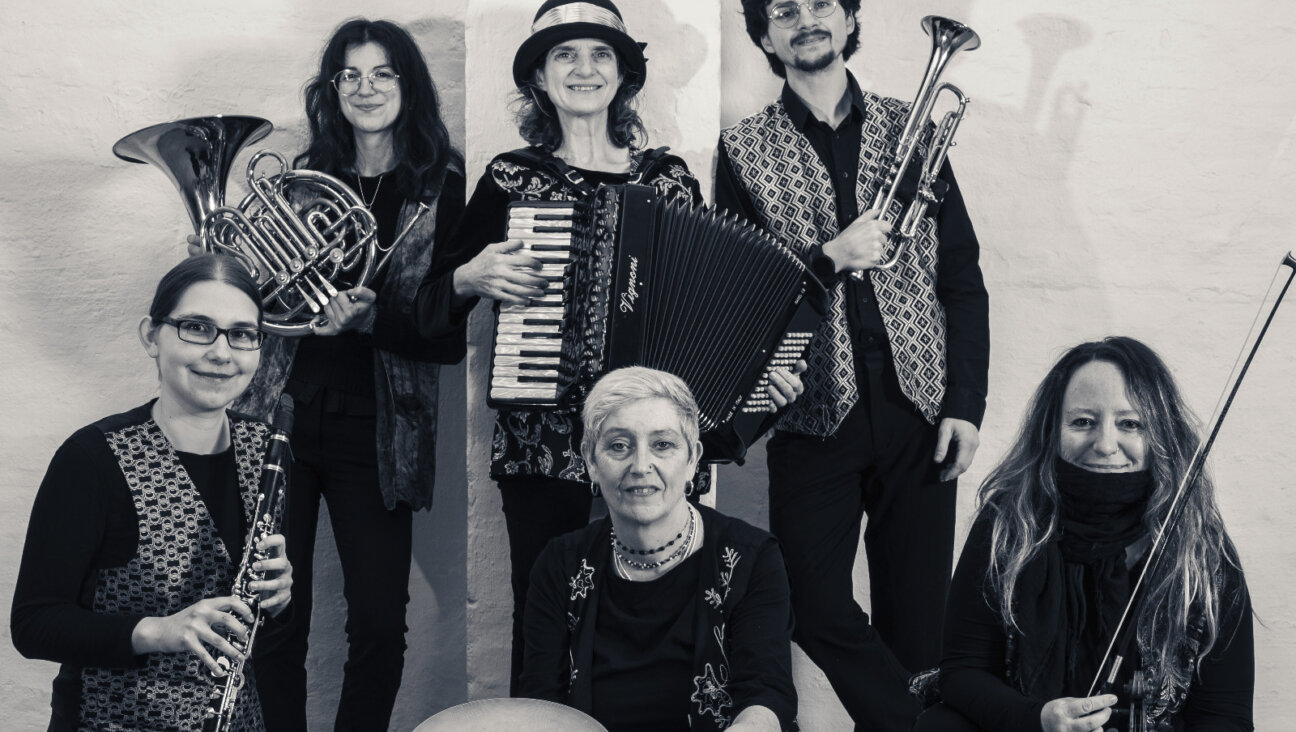The First Ever Chinese-Yiddish Song

Graphic by Angelie Zaslavsky

While writing her Ph.D. dissertation on Jewish Exile in Shanghai resulting from the Shoah, Yang Meng decided she needed to learn both Yiddish and Hebrew for the sake of her research. A Chinese national already fluent in English and German, once she took on the new languages she found herself fascinated by Yiddish, which she wrote to the Forward “is an indispensible key to understand[ing] Jewish culture.”
As part of her studies she participated in the 2015 Naomi Prawer Kadar International Yiddish Summer Program at Tel Aviv University. For that program’s closing ceremony she performed a song that was entirely unique: a Yiddish rewriting of a classic Chinese song, which she had translated into Yiddish with the assistance of Yuri Vedenyapin, a Yiddish language instructor based at Harvard.
The lyrics of the Chinese song, Liang Hongzi’s 1983 “Wishing We Last Forever,” is a musical setting of a poem by Su Shi, famed Chinese poet and essayist, written in 1076. “This song ‘Chinese Moon Over Tel Aviv’ is the first Chinese-Yiddish song in human history,” Meng wrote. “I am very attracted to the mamaloshen”—Yiddish for ‘the mother tongue—“and I hope I can bring Yiddish language and culture to my beloved China.”
In an English translation by Xu Yuanchong, Shi’s poem reads:
*”How long will the full moon appear?
Wine cup in hand, I ask the sky.
I do not know what time of the year
’Twould be tonight in the palace on high.
Riding the wind, there I would fly,
Yet I’m afraid the crystalline palace would be
Too high and cold for me.
I rise and dance, with my shadow I play.
On high as on earth, would it be as gay?
The moon goes round the mansions red
Through gauze-draped window soft to shed
Her light upon the sleepless bed.
Why then when people part, is the oft full and bright?
Men have sorrow and joy; they part or meet again;
The moon is bright or dim and she may wax or wane.
There has been nothing perfect since the olden days.
So let us wish that man Will live long as he can!
Though miles apart, we’ll share the beauty she displays.”
Having returned to China from the Yiddish Summer Program, Meng remains active in promoting both Holocaust education and Yiddish and Jewish culture in her home country. She thinks she’s there at the right moment: “Nowadays,” she wrote, “more and more Chinese are curious about Jewish history and culture.”
And as to her songwriting? “This is the first Chinese-Yiddish song in human history,” she wrote, “and will certainly not be the only one.”
Talya Zax is the Forward’s culture intern

















